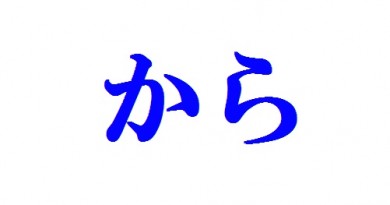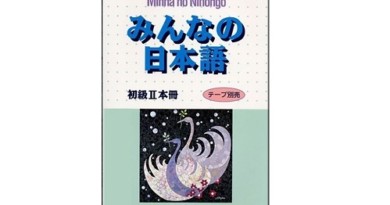Learn minna no nihongo lesson 30
6. Mondai
To do the “Mondai” section, you need “minna no nihongo” book and audios for listening
Exercise 1: Listen and answer questions
With this exercise, first you need to listen to the question and write down what you have listened and then answer the question according to your own understanding. You should not try to focus on clearly listening to each word of a sentence then missing the following sentences. You should listen it for the first time, answer the questions one by one, with the questions you can’t listen then listening to them the second time. After that, you can listen again and copy the words to improve your listening skill and remember words better. Finally, after listening and answering all questions, you can refer to the translation and the answer below.
Translation :
1. 机の上に何が置いてありますか。
tsukue no ue ni nani ga oi te ari masu ka.
What is put on the desk?
2. パスポートはどこにしまってありますか。
pasupo-to ha doko ni shimatte ari masu ka.
Where is the passport kept?
3. あなたの部屋の壁に何か掛けてありますか。
anata no heya no kabe ni nani ka kake te ari masu ka.
What is hung on the wall of your room?
4. パーティーの前に、どんな準備をしておきますか。
pa-ti no mae ni, donna junbi o shi te oki masu ka.
What will be prepared in advance before the party?
gaikoku he iku mae ni, donna koto o shi te oi tara ii desu ka.
Answer :
1. 時計が 置いて あります。
Tokei ga oite arimasu.
There is a clock (put on the desk).
2. 机の 引き出しに しまってあります。
Tsukue no hikidashi ni shimatte arimasu.
It is put in the drawer of the desk.
3. カレンダーが 掛けて あります。
Karenda- ga kakete arimasu
There is a calendar (hung on the wall).
4. 料理が 作ったり、音楽の テープを 準備したり しておきます。
ryori ga tsukuttari, ongaku no te-pu wo junbishitari shite okimasu.
We will make food and prepare music tapes.
5 ことばや 習慣を 勉強して おいたら いいと おもいます。
Kotoba ya shuukan wo benkyoushite oitara ii to omoimasu.
I think you should study the language and customs (of the country where you will go).
Exercise 2: Listen and choose true or false
With this exercise, the listeners will listen to the conversation, then there will be a key point about the problem that will be raised in the conversation. The listeners must choose whether the content is true or false according to what they has listened. If it is true, select 〇 (maru) and if it is false, choose ✖ (batsu). In this listening section, you should pay attention to the concluding sentence to see whether that sentence is given in a positive or negative form in order to avoid being “tricked” when listening.
1.
女: この傘、だれの ですか。
Who is this umbrella belongs to?
男: 忘れ物ですね。 名前が かいて ありませんか。
Is this forgotten thing? Is there a name written on it?
女: ああ、ここに 書いてあります。佐藤さんの です。
Ah, there is a name written here. It’s Ms. Sato’s.
★ 傘に 佐藤さんの 名前が 書いてあります。
★ There is a name “Sato” written on the umbrella.
Answer:(〇)
2.
女: セロテープは どこですか。
Where is cellotape?
男: あの 引き出しに ありませんか
Isn’t it in that drawer?
女: ええ、ないんです。
No, it isn’t.
男:ああ、ここに あります。すみません。
Oh, it’s here. I’m sorry.
★ セロテープは 引き出しに 入れて あります。
★ The cellotape is in the drawer.
Answer(✖)
3.
男: 木曜日の 晩の 予定は?
What is the plan for Thursday evening?
女: パワー電気の 森部長と お食事です。
It’s having a meal with the director (of department) Mori of Power Electricity Company.
大阪ホテルの レストランを 予約して おきました。
I have reserved at a restaurant of Osaka hotel.
女: そう、ありがとう。
Yes, thank you.
★ 男の人は 木曜日の晩 大阪ホテルで 食事します。
★ The man will have a meal at the Osaka hotel on Thursday evening.
Answer(〇)
4.
男: 田中さん、私が しますから、もう 帰っても いいですよ。
Mrs. Tanaka, I will do it, so you can go home.
女:はい、この資料 しまって おきましょうか。
Yes, shall I put this document away?
男:まだ、使いますから、だして おいてください
I will still use it, so please take it out.
女: そうですか、失礼します。
Yes, excuse me.
★ 女の人は 資料 を しまいます。
★ The woman will put away the document.
Answer(✖)
5.
女: おいしい ケーキがあるから、お茶でも 飲まない?
There is a delicious cake, so why don’t we drink some tea?
男:ええ、冷蔵庫に あった ケーキ?
Eh, the cake in the refrigerator?
あれ もう 食べて しまったんけど
I already ate it.
女: えっ‼
Eh !!
★ これから 冷蔵庫に 入れて おいた ケーキをたべます。
★ They will eat the cake put in the refrigerator from now on.
Answer(✖)
Exercise 3: Choose and give the true form of the word
With this exercise, you need to carefully review the vocabulary you have learned so that you can understand the sentence and can choose the right word then can give the true form of it.
| 予約します | コピーします |
| 払います | 買います |
Example:
旅行の 予定は もう (連絡して)あります。
I have already contacted about the trip schedule
Here are some exercises, after finishing, you can refer to the answers and translations below
1. パーティーの 飲み物は もう( )あります。
2. 会議の 資料は もう ( )あります。
3 家賃は もう ( )あります。
4. ホテルは もう ( )あります。
Exercise 4: Complete the sentence
In this exercise, you need to review the grammar to be able to understand the content and choose the words that are appropriate to the grammar structure of the sentences.
Example :
壁に 鏡が かけて(います・あります・おいます)
⇒ 壁に 鏡が かけて(あります)
There is a mirror hung on the wall.
1. 部屋の 電気が 消えて(います・あります・おいます)から、田中さんは もう 寝たと 思います。
2. 窓が 閉めて(いませんでした・ありませんでした・おきませんでした)よ。出かける ときは 閉めてください。
3. お花見の 日は みんんで 相談して (いて・あって・おいて)ください。
4. はさみは どこですか
…..引き出しに 入れて (います・あります・おきます)
Exercise 5: Read the following paragraph and choose true or false
(1) この人の 部屋の壁の 地球の 写真を はって あります。
(2) 月の うちの 部屋には 何も おいてありませんでした。
(3) このひと は 月の うちに 住みたいと 思いました。
Translation and Answer
The house I saw in the dream
There is a picture of a full blue moon on the wall in my room. I often look at it before going to bed.
One night, I dreamed. I was in a spacious room. And I can see the Earth from the window. I thought “this must be the house on the moon”. I was so happy. However, when looking closely, there is nothing hung on the wall. There aren’t any tables or chairs either. And there is nothing decorated in that house. Then I shouted, “I hate a house like this.”
Then, I woke up. In my room, there are bed and table. There is also a calendar hung on the wall. There are lots of my favorite books neatly arranged on the bookshelf. I think this house is better than the house I saw in the dream.
Question:
1. There is a picture of the earth on the wall of this person’s room(✖)
2. There is nothing in the room on the moon(〇)
3. This person want to live in the house on the moon.(✖)
Above is instruction to Learn minna no nihongo lesson 30. See other lessons in category : learn Japanese with minna no nihongo or: Japanese for beginers.

